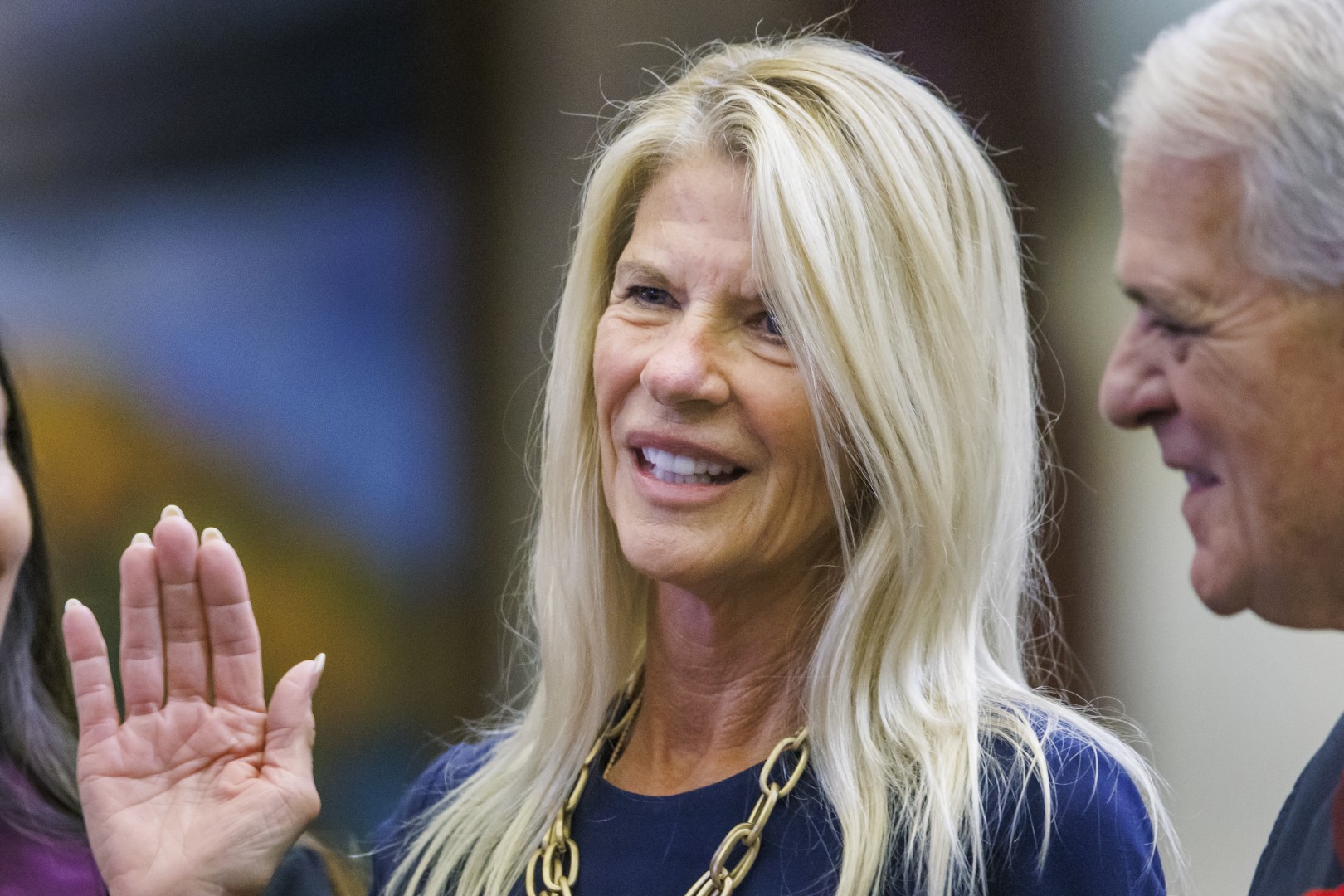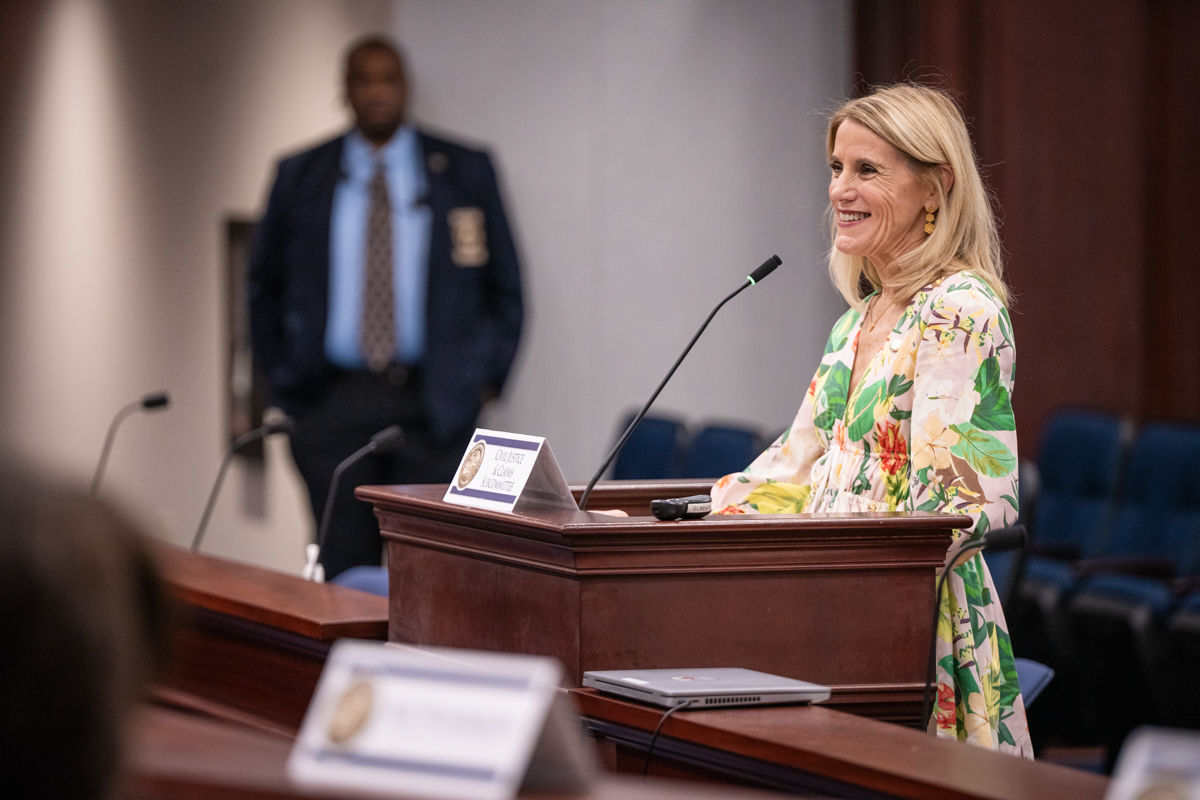Rep. Debbie Mayfield is one step closer to returning to her old seat in the Senate.
The Melbourne Republican has won a Republican Primary in Senate District 19, and will now advance to a June 10 Special Election against Democrat Vance Ahrens.
Mayfield secured the Republican nomination after defeating three GOP opponents: Republican Party activist Marcie Adkins, business graduate Mark Lightner and former Melbourne City Council member Tim Thomas.
With 100% of precincts reporting, Mayfield won nearly 61% of the vote in the four-candidate field, with Lightner taking more than 16%, Thomas more than 13% and Adkins under 10%.
“I’m grateful for the trust voters have placed in me tonight and will continue to work to earn the privilege of representing the Space Coast in Florida’s Senate,” Mayfield said.
The winner of the June election will succeed former Sen. Randy Fine, a Palm Bay Republican who resigned to run for Congress.
Mayfield, a Representative and former Senator, enjoyed the political victory weeks less than two months after winning a legal one to appear on the ballot.
Secretary of State Cord Byrd earlier this year disqualified Mayfield on the grounds that since, as a term-limited Senator, she could not seek this Senate seat in 2024, she should not be able to run in a Special Election months later to replace Fine, who resigned the seat to run for Congress.
But the Florida Supreme Court said Byrd erred both in reaching beyond the ministerial duties of running the Division of Elections and misreading Florida’s term limit rules, which only restrict nonconsecutive service in office.
Since the state’s high court validated her candidacy, Mayfield enjoyed massive financial support for her campaign. Through March 27, Mayfield spent nearly $169,000 on the race. She enjoyed support thanks to numerous influential political operations in Tallahassee donating maximum $1,000 contributions to her campaign, including Associated Industries of Florida, as well as lobbying firms like Greenberg Traurig, Rubin Turnbull & Associates and Ronald L. Book Government Consulting.
Political committees controlled by Senate President Ben Albritton and Sens. Jim Boyd, Colleen Burton, Ed Hooper, Corey Simon and Tom Wright, all of whom previously served with Mayfield in the Senate, also donated.
That gave Mayfield an edge financially before touching political committees under her control, including Conservatives for Good Government and Friends of Debbie Mayfield, the latter of which reported almost $117,000 in spending as of March 19.
The next biggest fundraiser proved to be Adkins, who spent more than $37,000 on the race through March 27. Thomas spent more than $14,000 through that point, while Lightner reported about $8,500 in expenditures. None of the candidates had high-profile committees supporting their campaigns.
Mayfield heads into the Special Election a heavy favorite. But Ahrens, whom Fine defeated in November, hoped to harness energy that allowed Democrats to overperform heading into two congressional Special Elections on Tuesday.
“While the GOP is playing musical chairs for power moves, I’m still focused on working for the citizens and my neighbors in Brevard County,” Ahrens told Florida Politics.
“After 30 years of GOP control, we are still facing an economic crisis with rising costs, especially for homes and insurance. I want to focus on a consumer and environmental approach to mitigating that crisis. Our environment is another important issue, impacting our eco-tourism and the Space Coast’s overall well-being. I want our children to be safe in school, and public schools must be well-funded to provide for all our kids. Lastly, like an overwhelming majority of Floridians, I believe medical decisions should only be made by patients and their doctors, not politicians.”
Post Views: 0

 Entertainment8 years ago
Entertainment8 years ago
 Politics8 years ago
Politics8 years ago
 Entertainment8 years ago
Entertainment8 years ago
 Entertainment8 years ago
Entertainment8 years ago
 Tech8 years ago
Tech8 years ago
 Tech8 years ago
Tech8 years ago
 Tech8 years ago
Tech8 years ago
 Politics8 years ago
Politics8 years ago









